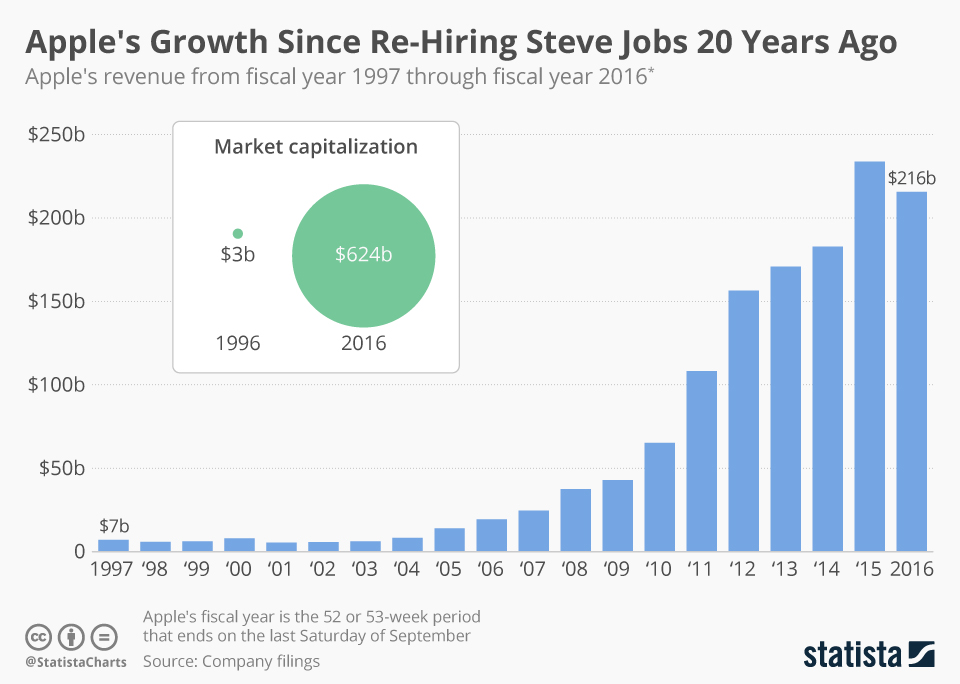Steve Jobs has been the face of Apple Inc. AAPL even after his death in October 2011. One of the co-founders of the storied firm, Job's stint at Apple has not been an smooth one. After he was ousted from the company in 1985, he returned to the company in late 1996 through the Next acquisition, rising like a phoenix from the ashes, gaining prominence and playing a significant role in the fortunes of the company than ever before. Thus, the decision to rehire Jobs seems to be the wisest the company has ever made.
Ouster And The Home Coming
Job's exit from Apple in 1985 was the result of the clash between himself and the then CEO John Sculley, whom Jobs hired from PepsiCo, Inc. PEP, over the second-generation Macintosh. While Jobs wanted to slash the price and ramp up advertisement for the product, Sculley was not too convinced of the viability of the measures to prop up the product. This led to Sculley taking the issue to the board and the board's subsequent authorization to remove Jobs from Apple.
The rehiring, announced in December 1996, 11 years after being shown the door, was termed by the company then, a part of a bold turnaround plan. The company had by then was bleeding money and talent, lacking a visionary leadership. So, it was a triumphant homecoming for Jobs, who was expected by the markets to take the company, known for its technological innovation, back to its heydays.
Apple Under Re-Hired Jobs
From the financial perspective, Apple has done well since Jobs took back the reins of the company. Innovation after innovation followed. The company launched the iPod, in 2001, the iPhone in 2007 and the iPad in 2010 — all possessing disruptive power.
Since 1997, Apple has grown its revenues by roughly 23 percent. If the years when the revenues had negative growth were left out, the growth improves to roughly 31 percent.
 You will find more infographics at Statista
You will find more infographics at Statista
Source: Statista
Since 2011, the revenue growth at Apple has slackened, dropping to a still strong 45.37 percent in 2012 from 66.15 percent in 2011. Then, there was a drastic drop to 8.9 percent in 2013 and 6.43 percent in 2014. After a pick up in pace to 28.57 percent in 2015, the company recorded its first annual revenue decline since 2001 in 2016, when revenues fell 7.7 percent.
With due credits to Tim Cook, Apple, bereft of Jobs, looks a little sour. The legacy of Jobs and concerted efforts on innovation is key to the company's success going forward. Can Apple taste the success it saw under Jobs? We are keyed in.
Original publication: January 09, 2017
Image Credit: By Matthew Yohe - Own work (Original text: self-made), CC BY 3.0, Wikimedia Commons
© 2025 Benzinga.com. Benzinga does not provide investment advice. All rights reserved.
Trade confidently with insights and alerts from analyst ratings, free reports and breaking news that affects the stocks you care about.